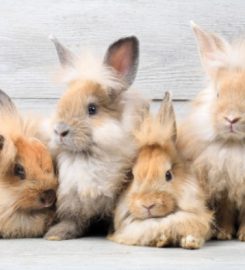Tudor House Veterinary
Welcome
Our main goal is to be able to offer animal owners absolutely every service they may require all under one roof, from veterinary treatments to surgeries we offer it all!
Trusted Vets formerly Tudor House is known across the UK for having a wealth of experience and being extremely knowledgeable when it comes to bulldog breeds amongst other breeds! We opened our doors to animal owners across the UK and soon became one of the popular choices for pet owners, bulldog owners and breeders.
Trusted Vets formerly Tudor House Veterinary Clinic Wolverhampton provides a full range of services for all your animal needs with a huge wealth of knowledge and experience, our veterinary professionals can confidently carry out any veterinary task and surgery when required.
Bulldog Veterinary Care
It’s hard to find a vet that truly understands Bulldog health however we can assure you our love and devotion to the breed is like no other.
How did we become so famous with the bulldog breeds? Well there is a simple answer for this! We were simply taught by the best!
Over the years we have built a very strong reputation for being extremely good with bulldogs we are renowned for seeing bulldogs from all over the country.
We have been famous for years when it comes to Cherry eyes in bulldogs as it’s very common. Pet owners have been travelling to us from all over the county for years for our cherry eye services and now BOAS operations. Our cherry eye surgery is known for being extremely affordable and effective. We are becoming increasingly famous for our BOAS surgery.
We take pride in our ability to take care of these issues and surgery on a daily basis. It’s important to know that having a vet that has a lot of experience with brachycephalic breeds is extremely important when choosing to own this type of breed.
Benefit from our in-house IDEXX Laboratory
We can get your pets test results fast
Animal blood is a mixture of cells, fluid, proteins and other biochemicals. If you require a blood test, we will look at what makes up their blood at that particular point in time. These results will allow our vets to use this information to learn more about your pet’s health.
On many occasions, a vet will decide to perform a pet blood test. They aim to obtain information that cannot be gained by examining the pet. Here at Trusted Vets, formerly Tudor House, we are proud to be able to offer in-house diagnostic blood work on our patients. We use the latest industry-standard analysers, typically providing results within 30 Minutes.
Blood tests are an essential aspect of routine veterinary examinations.
Dog Vaccination Wolverhampton
Trusted Vets formerly Tudor House offer Dog Vaccinations at our clinic in Wolverhampton for dogs and puppies.
Vaccinations will help to protect your dog from severe infectious diseases. It also prevents them from passing anything nasty on to other dogs in your area. Vaccinating your puppy is probably one of the most important things you should do in the first few weeks of being a dog owner.
Puppy/Core vaccinations
Dog Vaccinations Wolverhampton – DHPPi plus Lepto 2 or 4
Commonly used dog vaccinations, puppy core vaccines and yearly boosters contain a number of vaccines, we’ve listed these below.
DHPPi provides immunisation for dogs against canine distemper, hepatitis (canine adenovirus), canine parvovirus and canine parainfluenza and is typically given in combination with a leptospirosis vaccine (Lepto2 or L4). It is recommended that puppies should be immunised from 6 weeks of age, 2-4 weeks apart, with a second dose from 10 weeks of age. The onset of immunity is one week after the second vaccine. In dogs over 10 weeks of age, a single dose is likely to be sufficient to immunise.
Dog vaccinations provide long-lasting immunity against these core diseases, with a minimum duration of immunity and recommended revaccination interval of 3 years. An annual health check and vaccination against canine leptospirosis are still recommended for all dogs.
Cat Vaccinations Wolverhampton
Vaccinating cats and kittens
Cat vaccinations help to protect your beloved pet from severe infectious diseases. It also prevents them from passing anything nasty on to other animals in your area. One of the most important things you should do in your first few weeks as a cat owner is to vaccinate your kitten.
When should kittens be vaccinated?
Your kitten will need two sets of vaccinations to get them started – their first set at nine weeks old and a second booster set at three months old. After this, kittens and cats usually require ‘booster’ vaccinations once a year. Until your kitten is fully vaccinated (and neutered), you should keep him or her inside.
What diseases can vaccinations protect against?
Cats are commonly vaccinated against:
- Cat flu (feline herpes virus and feline calicivirus)
- Feline infectious enteritis
- Feline leukaemia virus
Your vet can advise which vaccinations your cat or kitten will need to help protect them from infectious diseases. When you get your kitten, one of the first things you should do is register them with a local vet who will be able to carry out the vaccinations your kitten needs.
FAQs
info@trustedvets.uk




